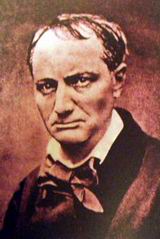Κατόπιν παραγγελίας από το εξωτερικό
Αποστέλλεται σε 2-3 εβδομάδες.
ISBN:
9780199535583
Έτος κυκλοφορίας
Εκδότης
The Flowers of Evil, which T. S. Eliot called the greatest example of modern poetry in any language, shocked the literary world of nineteenth century France with its outspoken portrayal of lesbian love, its linking sexuality and death, its unremitting irony, and its unflinching celebration of the seamy side of urban life. The volume was seized by the police, and Baudelaire and his published were put on trial for offence to public decency. Six offending poems were banned, in a conviction that was not overturned until 1949. This bold new translation, which restores the banned poems to their original places and reveals the full richness and variety of the collection, makes available to English speakers a powerful and original version of the world. Jonathan Culler's Introduction outlines this vision, stressing that Baudelaire is more than just the poet of the modern city. Originally to be called `The Lesbians', The Flowers of Evil contains the most extraordinary body of love poetry. The poems also pose the question of the role of evil in our lives, of whether there are not external forces working to frustrate human plans and to enlist men and women on appalling or stultifying scenarios not of their own making. ABOUT THE SERIES: For over 100 years Oxford World's Classics has made available the widest range of literature from around the globe. Each affordable volume reflects Oxford's commitment to scholarship, providing the most accurate text plus a wealth of other valuable features, including expert introductions by leading authorities, helpful notes to clarify the text, up-to-date bibliographies for further study, and much more.

O Charles Baudelaire γεννήθηκε στο Παρίσι τον Απρίλιο του 1821. Σε ηλικία έξι χρονών πεθαίνει ο πατέρας του και η μητέρα του ξαναπαντρεύεται τον Jacques Aupick κι αυτό χαλάει την ήρεμη ζωή του. Η οικογένεια μετακομίζει στη Λυών το 1832 και επιστρέφει στο Παρίσι το 1836. Ο Κάρολος παραμένει εσωτερικός στη Λυών στο κολέγιο Louis-le-Grand, από όπου αποβάλλεται για απειθαρχία, αυτό όμως δεν τον εμποδίζει να αποφοιτήσει το 1839. Mόνο η λογοτεχνική εργασία τον ενδιαφέρει. Ο ακράτητος δανδισμός του ανησυχεί την οικογένεια του, που τον στέλνει κοντά σε έμπιστό της καπετάνιο να κάνει τον γύρο του κόσμου, μήπως και συνετισθεί. Μετά τα νησιά Maurice, και Βourbon, διασχίζει τις Ινδίες. Επιστρέφοντας στη Γαλλία, το 1842, συνδέεται με τη Jeanne Duval. Συναντά τους Balzac, Nerval, Theophille Gautier, Theodore de Bauville. Δεν καταφέρνει να εκδώσει τα πρώτα του άρθρα και δημιουργεί τέτοια χρέη, που τον οδηγούν σε καταδίκη το 1844 (σε ηλικία 24 χρόνων) -κάτι που δεν συγχωρεί στη μητέρα του, παρά μόνο μετά το θάνατο του στρατηγού Jacques Aupick το 1857. Δημοσιεύει τα πρώτα του έργα στο "Salon de 1845", "Salon de 1846", - La Fanfarlo- 1847, συνεργάζεται με τα περιοδικά "Τintamarre", "Corsaire-Satan", "Messager", "Monde literaire", "Artiste", με ποιήματα και ποικίλα δοκίμια. Από το 1851 αρχίζει να μεταφράζει Edgar Poe. Το 1857 εκδίδει τα "Άνθη του κακού" όπου έξι από αυτά στηλιτεύονται από τη δικαιοσύνη. Η υγεία του είναι εύθραυστη αλλά η λογοτεχνική του δραστηριότητα μεγάλη. Κατά τη διαμονή του στο Βέλγιο επιδεινώνεται η υγεία του, μαζί με τις ατυχίες του. Στην επιστροφή μαζί με τη μητέρα του στο Παρίσι, πεθαίνει τον Αύγουστο του 1867 σε ηλικία 46 ετών.
Δείτε όλα τα βιβλία του συγγραφέα